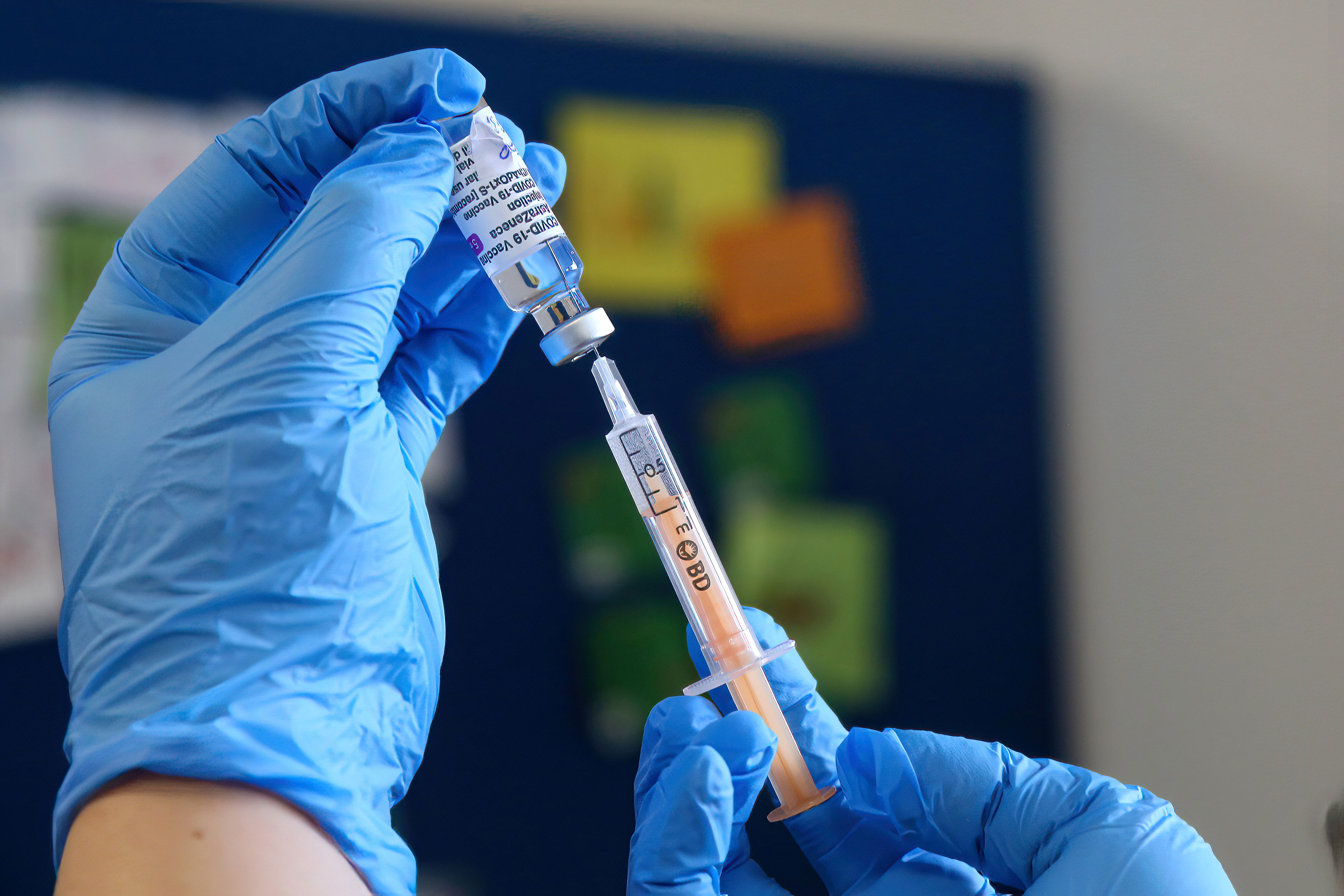
Researchers at Oxford University have found the risk of a rare type of blood clot is low overall, but higher for people who have been infected with Covid-19 than among people who’ve had the three vaccines authorized in the UK – those made by AstraZeneca, Moderna and Pfizer.
The study, made available in pre-print on Thursday on the Oxford website ahead of publication in a scientific journal, says the risk of cerebral venous thrombosis or CVT – also known as cerebral venous sinus thrombosis or CVST – following Covid-19 infection is around “100 times greater than normal and several times higher than it is post vaccination or following influenza,” across all age groups.
“Covid-19 markedly increases the risk of CVT, adding to the list of blood clotting problems this infection causes,” Paul Harrison, professor of psychiatry and head of the Translational Neurobiology Group at the University of Oxford said.
Oxford University, which developed the AstraZeneca vaccine, said the research is from a separate part of the university and is not connected to the vaccine team. The data used was obtained from external sources, specifically the European Medicines Agency.
When compared to the risk of clots from the three vaccines, the risk from infection is “between 8-10 times higher, and compared to the baseline, approximately 100 times higher for infection,” Oxford said in a news release. According to the research, when compared with the mRNA vaccines – Pfizer and Moderna – the risk of CVT from Covid-19 infection is about 10 times greater. When compared with AstraZeneca, the risk of a CVT from Covid-19 is about eight times greater. The Johnson & Johnson Covid-19 vaccine was not included in the analysis.
Using an electronic health records network of over 500,000 Covid-19 positive cases, 489,871 vaccinated cases and 172,724 cases of influenza, the study found 30% of CVT cases occurred in the under-30 age group, the most at-risk for blood clots.
“Considering the balances between risks and COVID-19 risk is higher than see with the current vaccines, even for those under 30; something that should be taken into account when considering the balances between risks and benefits for vaccination,” Harrison added.
Dr. Maxime Taquet from Oxford’s Translational Neurobiology Group and a co-author of the study cautioned that data is still accruing. Researchers also are still to determine if Covid-19 and vaccines lead to CVT in the same way, she said.
Experts noted that CVT is so rare, there is limited data even from before the pandemic, and the data and data sources around the Covid-19 vaccines are inconsistent and limited.
“Overall the main finding is that these CVT events are very rare – a few in every million people involved – in Covid-19 patients and in people who had one of the vaccines – but they were very much rarer in the people who had a vaccine than in people who had Covid-19,” said Kevin McConway, emeritus professor of applied statistics at the Open University, in a comment to the Science Media Centre in the UK. “The researchers are not claiming that vaccines do not increase the risk at all compared to the risk in people who have not been vaccinated and have also not had Covid-19 – but they say the CVT risk in people who have had Covid-19 is about 100 times the risk in the general population.”
Some background: European and British medicines regulators last week announced a “possible link” between the AstraZeneca vaccine and rare cases of blood clots, with the UK announcing it would offer people under 30 an alternative vaccine. Other countries have followed suit and are either only offering to people above a certain age or are like Denmark and Norway, scrapping the vaccine entirely. While advising the public to look out for the signs of clots, the regulators said the benefits of the shot were still worth the risk. The AstraZeneca vaccine has not been authorized for use in the United States.
Six reports of similar clotting events following vaccination with the single-dose Johnson & Johnson vaccine prompted the US Centers for Disease Control and Prevention and the US Food and Drug Administration to recommend a pause on administering the vaccine to allow for further investigation.
Six women between the ages of 18 and 48 had developed a cerebral venous sinus thrombosis, a clot in the area of the brain that collects and drains oxygen-depleted blood. Blood thinners, the typical treatment for clots, should not be used in such cases. The six reported cases were among more than 6.8 million doses of the Johnson & Johnson vaccine administered in the United States.
The EU, which is heavily relying on the J&J vaccine to bolster its lagging vaccination rollout, has also paused use of the shot. The European Medicines Agency is expected to announce a decision on administering the Johnson & Johnson vaccine next week.
The WHO on Thursday said "for now the risk of suffering blood clots, is much higher for someone with COVID-19 than for someone who has taken the AstraZeneca vaccine." WHO Regional Director for Europe Hans Kluge reiterated its recommendation of the AstraZeneca vaccine for all eligible adults, calling it "effective in reducing COVID-19 hospitalization and preventing deaths.”
Health - Latest - Google News
April 16, 2021 at 05:16AM
https://ift.tt/3geuZHx
The latest on the coronavirus pandemic and vaccines: Live updates - CNN
Health - Latest - Google News
https://ift.tt/2zrj9Ud
Bagikan Berita Ini















0 Response to "The latest on the coronavirus pandemic and vaccines: Live updates - CNN"
Post a Comment